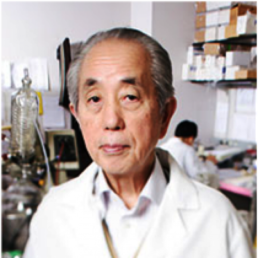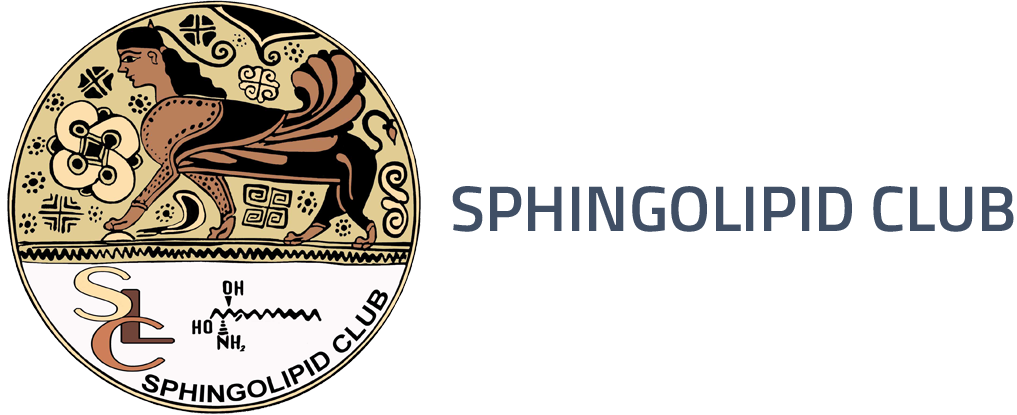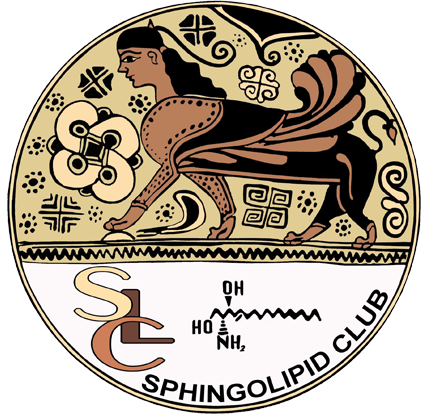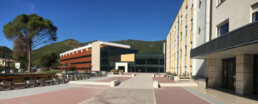POST-DOC FELLOWSHIP AT TSAFFRIR ZOR LAB, TEL-AVIV
POST-DOC FELLOWSHIP AT TSAFFRIR ZOR LAB, TEL-AVIV
The Azrieli Fellows Program has issued the Azrieli International Postdoctoral Fellowship Call for Applications for the 2022–23 academic year.
.
SLC AWARDS FOR 2021 - WINNERS
SLC AWARDS FOR 2021 – WINNERS
Yuliya Fakhr and Bisera Stepanovska are the winners of the awards for partecipating to the 2021 Faseb Lysophospholipid and Related Mediators Conference.
14th SLC MEETING SEPTEMBER 2022
14th SLC MEETING
The Sphingolipid Club is pleased to announce the upcoming XIV Meeting, that will be held at Neuromed, Pozzilli (Central Italy) (www.neuromed.it), chaired by Vittorio Maglione and Alba Di Pardo, on next September, 7-11, 2022.
The Meeting will cover all the topics associated with sphingolipids, ranging from their biochemical and biophysical properties to the development of new tools and applications. Particular attention will be also paid to the role of sphingolipids in both human health and disease conditions with the aim to provide a global scenario of emerging sphingolipid-based therapeutic approaches.
Each scientific session, moderated by recognized leaders in the field, will include a balance of talks from well-established experts and young investigators. Oral communications and posters from early-stage career scientists and students, as well as from investigators from outside the field, who have recently become interested in sphingolipid biology, will be particularly welcome. This will provide a vibrant, interdisciplinary and cross-generational environment which will allow all the participants to share their “sphingolipid vision” and to establish new fruitful and exciting collaborations.
CLICK HERE to find all the information on the upcoming Meeting.
We are confident that you will be able to participate and contribute with your most recent findings.
For the success of the Meeting we incentivize young researchers to be actively present, and we are planning to offer travel grants to the most valuable presentations.
Do not hesitate to contact us by mail at info@sphingolipidclub.com , for any need you have.
We are looking forward to meeting you in Pozzilli in September!
Vittorio Maglione and Alba Di Pardo
A THEMED HONORARY ISSUE TO PROF. LINA OBEID
A THEMED HONORARY ISSUE TO PROF. LINA OBEID
April 2021
The Sphingolipid Club is pleased to announce that a Themed Honorary Issue to our beloved Lina Obeid has been recently published in Cells. Gehrild Van Echten – Deckert has served as the Editor of this Special Issue.
Link to: https://www.mdpi.com/journal/cells/special_issues/Sphingolipids_Pathology
NEW ENTRY IN THE SCIENTIFIC BOARD
NEW ENTRY IN THE SCIENTIFIC BOARD
April 30, 2021
Alice Alessenko from Russian Accademy of Science, Moscow, Russia, is a worldwide recognized pioneer in the research on Sphingolipids. The SLC is honoured to associate her to its Scientific Board.
SEN-ITIROH HAKOMORI A PIONEER IN SPHINGOLIPID SCIENCE
SEN-ITIROH HAKOMORI A PIONEER IN SPHINGOLIPID SCIENCE
November 28, 2020
It is sad to announce the loss of Sen-itiroh Hakomori, who passed away on last November 11, at the age of 91.
Sen-itiroh Hakomori was an eminent japanese-american biochemist, Professor Emeritus of Pathobiology and Global Health, at the University of Washington, but was firstly on of the world leading scientists in the area of glycosphingolipids, with most contributions that acknowledge for him the nickname of “Dr. Glycolipid”!
The Sphingolipid Club is honoured to receive and post on its website any message in memory of this extraordinary scientist, who always encouraged young associates and postdocs to develop their own ideas, and to advance in the progress of their projects.
Those who had the chance to know him will never forget his great humanity, friendliness and ascendance, and those who had not this opportunity surely have taken profit from his unvaluable contribution to the advance of science.
For sure, we will miss Sen-itiroh Hakomori a lot.
BIOGRAPHY OF PROF. SEN-ITIROH HAKOMORI

Prof. Hakomori graduated from the Tohoku University School of Medicine and immediately started his research on biochemistry of glycolipids. He was trained by Dr. Masamune, a professor of biochemistry in Tohoku University, and a pioneer in carbohydrate biochemistry. Dr. Masamune has a strong perspective on biology of complex carbohydrates and he strongly influenced the research direction of Prof. Hakamori from the beginning of his glycolipid studies. Prof. Hakomori thus had a keen interest in understanding and determining the function of mammalian glycolipids.
In the early stages of his research career, Prof. Hakamori worked on the difference between glycolipids from normal and cancer cells and depending on cancer systems studies, he found two critical changes after the cells become transformed. One common feature is that the larger more complex glycolipids decrease and the corresponding shorter glycolipids accumulate. Since this shorter structures were thought to represent precursors, it was evident that carbohydrates were not fully synthesized and precursor glycolipids accumulate in cancer cells. In less frequent systems or situations, cancer cells accumulate longer glycolipids at the expense of shorter glycolipids. Prof. Hakomori was a pioneer in establishing glycan markers for cancer cells since he showed that they are characteristically different in cancer cells compared to those in normal cells. This is still the basis of our current studies to identify glycan markers that are specific to pathological conditions, including cancer. The biological and medical aspects of his contributions have been a tremendous help to the glycobiology and biomedical communities in understanding how pathological conditions change glycan structures.
Prof. Hakomori has made critical contributions to our understanding of the carbohydrate structures of glycolipids. One such contribution is the determination of blood group antigens, including the ABO antigen. His studies completed the studies initiated by Kabat, Morgan, and other pioneers who gave us a critical notion of the glycan structure. Thus, the presence of a specific sugar residue can determine whether that glycolipid in an A or B blood group antigen and its absence make these glycolipids H antigen or O blood group, and this is only a fraction of what Prof. Hakomori contributed. He also studied the development and function of antigens in determining the structure of glycolipids, including blood group i and I, which correspond to fetal and adult antigens of human red cells.
As another monumental work, Prof. Hakomori purified human blood groups A, B and O enzymes and cloned the cDNAs encoding those enzymes and his findings were striking. He and his associates showed that blood group A and B enzymes differ by less than 10 amino acids and only four amino acid differences in a part of the amino acid sequence determine the substrate specificity toward UDP-Gal or UDP-GalNAc. Moreover, his group showed that H enzyme is inactive because its translation product is prematurely truncated. His work represented a major advance in our understanding of the function of glycosyltransferases and how genetic alterations of one gene has such a huge influence in activity, which results in a dramatic change in the enzymatic product as an antigen.
In recent years, Prof. Hakomori was studying an entirely new research field by looking at carbohydrate-carbohydrate interactions of glycolipids. This is an entirely new field and driven very much by his hypothesis. If glycolipids are present on cell surfaces, one glycolipid may interact with other glycolipid on an opposing cell. This interaction takes place mainly through van der Waals interactions and hydrogen bonding. Because some carbohydrates, such as fucose, are more hydrophobic than the others, an interaction may take palce between carbohydrates of two different glycolipids. This is an original idea from Prof. Hakomori’s work and further studies by his and other groups will provide further evidence for its functional significance.
Prof. Hakomori is an outstanding scientist who encouraged young associates to develop. Toname a few, Drs. Roger Laine at Louisiana State University, Carl Gahmberg at University of Helsinki, Drs. Michiko and Minoru Fukuda at Sanfod-Burnham, Cliff Lingwood in Toronto, Masaki Saito at Ryukyu University, Japan, Reiji Kannagi at Aichi Cancer Center, Taeko Miyagi, at Institute for Health Sciences at Sendai, and Yasayuki Igarashi at Hokkaido University have very active research programs and benefitted by training with Prof. Hakomori.
One of Prof. Hakomori’s strengths is to bring his unorthodox new ideas to postdocs, challenging them to develop their own ideas, and eventually develop their own research directions. Prof. Hakomori also contributed to the development of the Society for Glycobiology and he organized the XIII International Symposium on Glycoconjugates in 1995. For all of these accomplishments and service to the field the Society of Glycobiology has awarded Prof. Hakomori the 2011 Rosalind Kornfeld Award for Lifetime Achievement in Glycobiology. This award is given by the Society to scientists who have, over their professional lifetimes, made significant contributions with important impact on the field.
(adapted from the Society for Glycobiology website, at www.glycobiology.org)
MESSAGE IN MEMORY OF THE EXTRAORDINARY SCIENTIST, PROF. HAKOMORI, BY PROF. SARAH SPIEGEL
It is with profound sadness that I was informed of the passing of my role model, Professor Sen-itiroh Hakomori. A long time ago when I was a graduate student, his papers and reviews on the role of glycoconjugates in cancer sparked my imagination and inspired me to pursue a career on sphingolipids. He was a wonderful advocate for research in glycoconjugates and glycosphingolipids in particular, a true leader and the guru of the field. During his long career, he influenced countless scientists like myself and provided us with an amazing role model that was hard to follow in his big footsteps. Anyone who had the honor of interacting with Professor Hakomori will tell you that he had a deep passion for helping to shape the next generation of glycosphingolipid scientists. He was a champion of advancing careers of young female scientists and his generous spirit influenced my generation and generations to come. His legacy will live on through the works of countless researchers who continue working in the field of sphingolipids and many colleagues throughout the world will miss him tremendously.
Sarah Spiegel, PhD Professor and Chair Department of Biochemistry and Molecular Biology
NEW ENTRY IN THE SCIENTIFIC BOARD
NEW ENTRY IN THE SCIENTIFIC BOARD
October 13, 2020
Al Merrill from Georgia Tech, Atlanta, USA, is a worldwide recognized pioneer in the research on Sphingolipids. The SLC is honoured to associate him to its Scientific Board.
A NEW TEAM MEMBER OF THE SPHINGOLIPID CLUB
A NEW TEAM MEMBER OF THE SPHINGOLIPID CLUB
24 July 2020
Francesca Guala is the new Secretary of the Sphingolipid Club.
Please contact her at info@sphingolipidclub.com for queries, comments and suggestions.
THE SPHINGOLIPID CLUB YOUTH BOARD
THE SPHINGOLIPID CLUB YOUTH BOARD
24 July 2020
The Sphingolipid Club is highly supportive of its young members and cherishes the need to promote young scientists’ formation and advance in their career. However, a lot of those who could benefit from this support are not aware of the opportunities the society offers. To increase the awareness about these benefits and to make them more accessible and easier to understand we decided to constitute the Sphingolipid Club Youth Board. With this, it is intended to create an active, collaborative network connecting the new generations of researchers in the sphingolipid field, thus giving the chance to all young scientists to be involved and feel heard in the well-established scientific community.
The Members of the Youth Board are:
Sara Grassi, Coordinator, University of Milan, Italy
Valentine Yolander, Virginia Commonwealth University, USA
Anne Monfort, University of Toulouse, France
Shah Alam, University of Bonn, Germany
Johannes Morstein, New York University, USA











